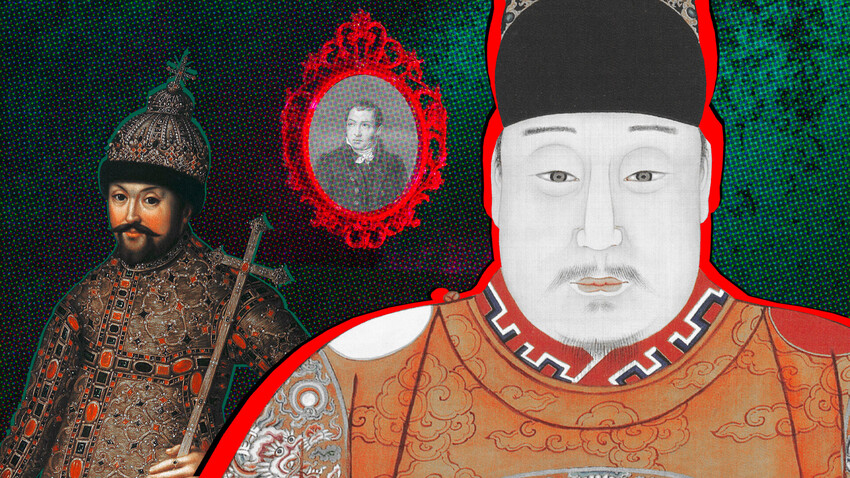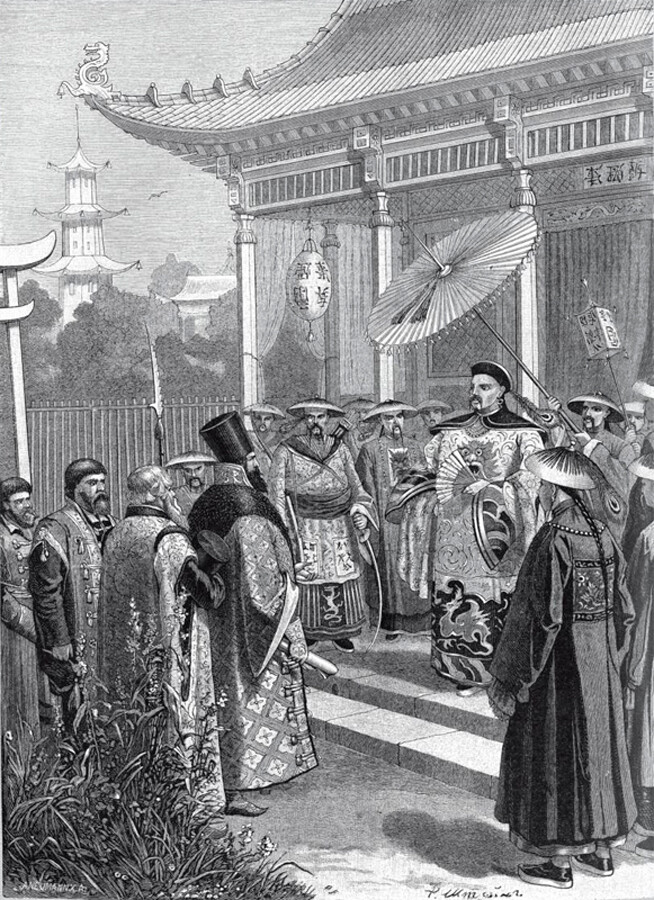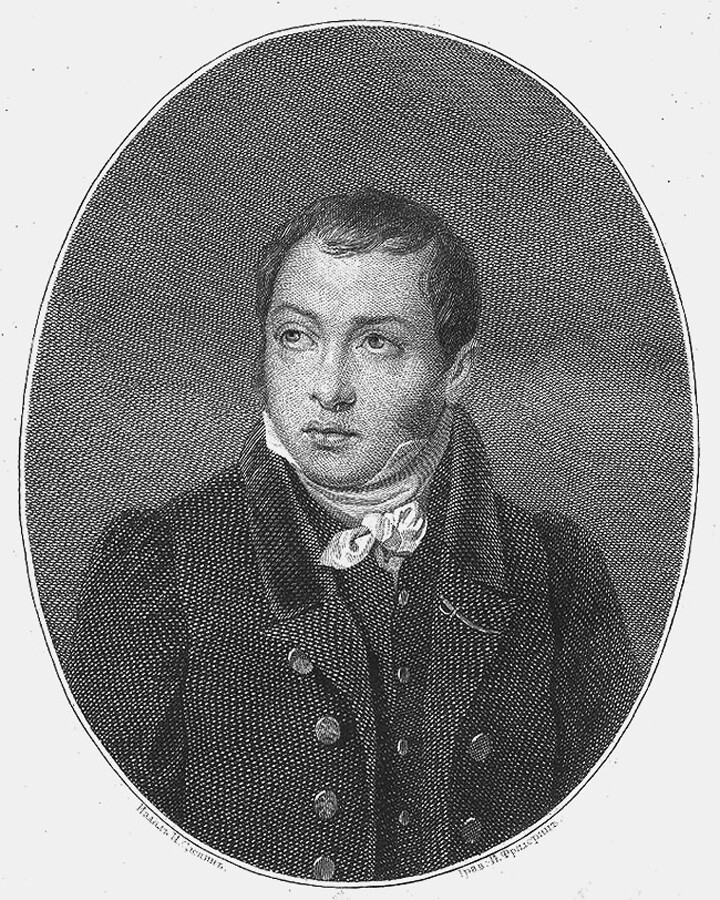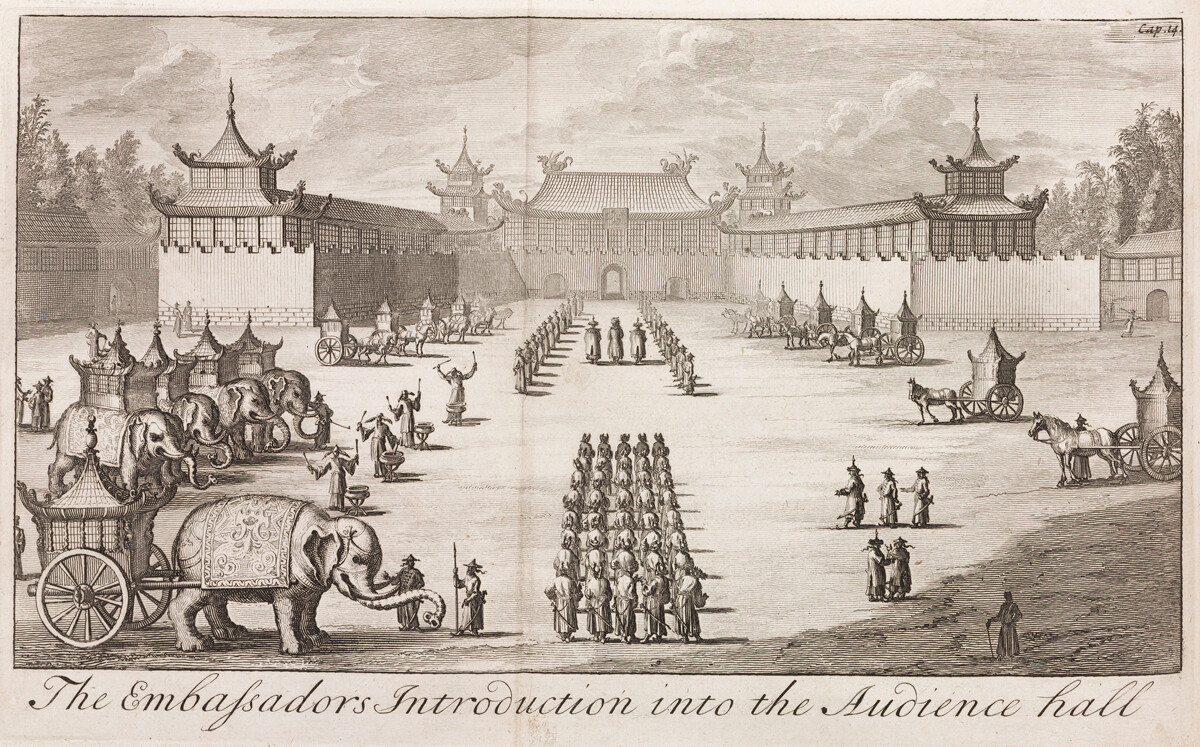
According to one theory, the expression “kitayskaya gramota” came from a historical document that Tomsk Cossack Ivan Petlin brought back from China in 1619.
In 1618, a mission led by Petlin went to Peking (Beijing). The Cossacks were not granted the highest audience, because they had not brought any gifts for Ming dynasty Emperor Zhū Yìjūn. Instead, they were handed a letter from the Chinese emperor for Tsar Mikhail of Russia. The document said that Russians were allowed to visit the country and trade within its borders and proposed establishing a correspondence between the two courts.

Russian envoys of the 17th century in China
Niva magazine/Public domainThe letter was delivered to Moscow, where it then lay gathering dust for a good 56 years. No-one could read it. It is believed that, in the end, it was translated by a diplomat in the service of Tsar Alexei Mikhailovich (Alexis of Russia) by the name of Nikolai Gavrilovich Spathari. By that time, however, the missive from the Ming dynasty emperor had already lost its relevance, because representatives of the Qing dynasty (ruled by the Manchus) had taken power in China.
In the 17th and first half of the 18th centuries, the Chinese and Manchu languages were not known in Russia nor the Russian language in China. At negotiations, Latin and Mongolian were used via intermediaries - Western missionaries who had settled in China in the 16th century or Mongol interpreters. The double translation often distorted the sense of the original. What’s more, the translators, sometimes, deliberately added or omitted things. And, anyway, their knowledge of the languages was far from perfect. The practice of communicating through a “third language” persisted until the second half of the 18th century, when students of the Russian Ecclesiastical Mission in China, established in Peking in the early 18th century, took up the role of translating.
The use of an intermediary language also had a negative political aspect. After all, it resulted in representatives of third countries finding themselves privy to the affairs of Russia and China. And they were not always favorably disposed towards Russia or interested in the development of Russia’s relations with the Celestial Empire.
In summary, it seems there was no desire to involve foreigners in the translation of the letter and, since there was no urgent need for it, the document was put away and forgotten about for a long time.
In Russian writing on contemporary themes, the expression “kitayskaya gramota” can first be found in 1829 in Thaddeus Bulgarin’s novel ‘Ivan Vyzhigin’.
“Vyzhigin! I have come to offer you the position of director in my chancery.”
“Have mercy upon me, Count! I have not the smallest experience in business and may do more harm than good. <…> Business to me is as strange as Chinese writing (Dela tak mne chuzhdy, kak kitayskaya gramota)!”

Thaddeus Bulgarin
Public domainIt can’t be ruled out, of course, that the memory of Zhū Yìjūn’s document only resurfaced in contemporary writing two centuries after Petlin’s expedition. But, experts consulted by us - historians of the Russian language and Sinologists - cast doubt on the idea that the phrase was derived from the Ming emperor’s missive.
They think it more probable that “kitayskaya gramota” appeared in the Russian language as a calque of an idiom borrowed from a foreign language and superimposed on the existing Russian phrase “tarabarskya gramota” (meaning cryptic or incomprehensible pronouncement or writing). This process is known as phraseological “contamination”.
Various languages have used the term “Chinese” to describe something incomprehensible:
The “Chinese” idiom as used by Thaddeus Bulgarin probably crossed over to the Russian language from the French. French has the expression: “C’est du chinois” (“It’s Chinese”), which is listed in dictionaries from 1790 onwards and was actively used throughout the 19th century by authors to denote something incomprehensible. The beginning of the 19th century in Russia was marked by a flourishing of Francomania, with the nobility using the French language and French idioms in everyday speech and in their correspondence.
It is interesting to look at the biography of Bulgarin himself. In pre-Revolutionary Russian histories, Bulgarin, who was born in what was then the Grand Duchy of Lithuania, was regarded as a Pole. At the age of nine, with a poor knowledge of Russian, he was sent to St. Petersburg for his schooling. When he was just over 20, he went to Poland and enlisted in the army of the Duchy of Warsaw set up by Napoleon and took part in the Patriotic War of 1812 on the side of France. Thus, he could have derived the phrase “kitayskaya gramota” from the French or Polish expressions.
The phrase “tarabarskaya gramota” - denoting something unintelligible, encoded, incomprehensible without a key to the code - already existed in the Russian language.
According to the Brockhaus and Efron encyclopedic dictionary of 1914, “tarabarskaya gramota” was used for a simple or letter-based code. It was a system of encryption borrowed from Byzantium and known to the Slavs as early as the 13th century. In it, all the consonants of the Cyrillic alphabet were placed in two rows of 10 letters each, the letters in the lower row being in reverse order. To encrypt a letter you had to replace the consonants in the text with their “neighbors” from the upper or lower row. Morits Mikhelson’s 1902 explanatory phraseological dictionary says that “tarabarskya gramota was employed for diplomatic letters even before the 15th century and is now used by Old Believers in their secret correspondence”.

An official reception, possibly in Peking (now Beijing). Engraving from "Three Years Travels from Moscow over-land to China" by Evert Ysbrants Ides, published in London in 1706
SSPL/Getty ImagesAs regards to “gramota”, even in the first explanatory dictionary of the Russian language - the Dictionary of the Russian Academy (1790) - the word had several meanings. These included not just “Sovereign’s decree”, “letter, missive” and “treaty, peaceful provision of two Sovereigns in signing a peace treaty and alliance”, but also the “ability to read and write”.
“Kitayskaya gramota” in the sense in which the phrase was used in the response by Thaddeus Bulgarin’s protagonist literally meant “incomprehensible writing” and not a document, per se. Exactly the same meaning is cited in Morits Mikhelson’s 1902 explanatory phraseological dictionary: “unintelligible, incomprehensible writing”.
Dear readers,
Our website and social media accounts are under threat of being restricted or banned, due to the current circumstances. So, to keep up with our latest content, simply do the following:
If using any of Russia Beyond's content, partly or in full, always provide an active hyperlink to the original material.
Subscribe
to our newsletter!
Get the week's best stories straight to your inbox